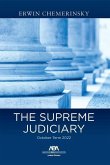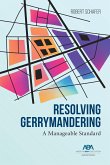On Being American: The Jurisprudence of Ruth Bader Ginsburg tells the story of an advocate and a jurist committed to a broader understanding of what it means to be an American. As Linda Greenhouse explains in the Foreword, Justice Ginsburg was committed to an America that enables people with diverse experiences to live together in civic harmony. With civic harmony as its foundation, Justice Ginsburg articulated the anti-stereotyping as the guiding principle for broadening the "who" and the "what" of American citizenship. Knowing that implementing this vision depended on effective legislation, Justice Ginsburg believed also in jealously guarding the franchise and in honoring the people's decision to expand it. Towards the end of her career as she dissented in abortion cases, Justice Ginsburg warned that the failure to adopt the anti-stereotyping principle posed the biggest threat in issues of reproductive choice. The editors of this book come as close as they can to a posthumous version of what she would have written in Dobbs in the brief by Serena Mayeri, Melissa Murray, and Reva Siegel as Amici Curiae in Dobbs, included as one of the chapters. In two post-Dobbs chapter, the book first explores what the Equal Rights Amendment would have meant to Justice Ginsburg in a post-Dobbs world. In the last chapter, the book imagines how her jurisprudence would have analyzed different kinds of discrimination, not in the abstract but in the realities of the lives affected by it.
Hinweis: Dieser Artikel kann nur an eine deutsche Lieferadresse ausgeliefert werden.
Hinweis: Dieser Artikel kann nur an eine deutsche Lieferadresse ausgeliefert werden.








